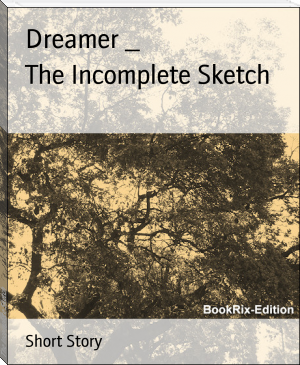Thoughts Of Marcus Aurelius Antoninus - Marcus Aurelius Antoninus (novels to read for beginners .TXT) 📗

- Author: Marcus Aurelius Antoninus
Book online «Thoughts Of Marcus Aurelius Antoninus - Marcus Aurelius Antoninus (novels to read for beginners .TXT) 📗». Author Marcus Aurelius Antoninus
This Is Nothing In Fact In The Way Of Objection To What Is Said.[A]
Story 3 (The Thoughts Of Marcus Aurelius Antonius) Pg 101
[A] The End Of This Section Is Perhaps Corrupt. The Meaning Is
Very Obscure. I Have Given That Meaning Which Appears To Be
Consistent With The Whole Argument. The Emperor Here Maintains
That The Essential Part Of Man Is Unchangeable, And That The
Other Parts, If They Change Or Perish, Do Not Affect That Which
Really Constitutes The Man. See The Philosophy Of Antoninus, P.
56, Note 2. Schultz Supposed "Thy Mother" To Mean Nature,
[Greek: Hê Physis]. But I Doubt About That.
8. When Thou Hast Assumed These Names, Good, Modest, True, Rational, A
Man Of Equanimity, And Magnanimous, Take Care That Thou Dost Not Change
These Names; And If Thou Shouldst Lose Them, Quickly Return To Them. And
Remember That The Term Rational Was Intended To Signify A Discriminating
Attention To Every Several Thing, And Freedom From Negligence; And That
Equanimity Is The Voluntary Acceptance Of The Things Which Are Assigned
To Thee By The Common Nature; And That Magnanimity Is The Elevation Of
The Intelligent Part Above The Pleasurable Or Painful Sensations Of The
Flesh, And Above That Poor Thing Called Fame, And Death, And All Such
Things. If, Then, Thou Maintainest Thyself In The Possession Of These
Names, Without Desiring To Be Called By These Names By Others, Thou Wilt
Be Another Person And Wilt Enter On Another Life. For To Continue To Be
Such As Thou Hast Hitherto Been, And To Be Torn In Pieces And Defiled In
Such A Life, Is The Character Of A Very Stupid Man And One Over-Fond Of
His Life, And Like Those Half-Devoured Fighters With Wild Beasts, Who
Though Covered With Wounds And Gore, Still Intreat To Be Kept To The
Following Day, Though They Will Be Exposed In The Same State To The Same
Claws And Bites.[A] Therefore Fix Thyself In The Possession Of These Few
Names: And If Thou Art Able To Abide In Them, Abide As If Thou Wast
Removed To Certain Islands Of The Happy.[B] But If Thou Shalt Perceive
That Thou Fallest Out Of Them And Dost Not Maintain Thy Hold, Go
Courageously Into Some Nook Where Thou Shalt Maintain Them, Or Even
Depart At Once From Life, Not In Passion, But With Simplicity And
Freedom And Modesty, After Doing This One [Laudable] Thing At Least In
Thy Life, To Have Gone Out Of It Thus. In Order, However To The
Remembrance Of These Names, It Will Greatly Help Thee If Thou
Rememberest The Gods, And That They Wish Not To Be Flattered, But Wish
All Reasonable Beings To Be Made Like Themselves; And If Thou
Rememberest That What Does The Work Of A Fig-Tree Is A Fig-Tree, And
That What Does The Work Of A Dog Is A Dog, And That What Does The Work
Of A Bee Is A Bee, And That What Does The Work Of A Man Is A Man.
[A] See Seneca, Epp. 70, On These Exhibitions Which Amused The
People Of Those Days. These Fighters Were The Bestiarri, Some
Of Whom May Have Been Criminals; But Even If They Were, The
Exhibition Was Equally Characteristic Of The Depraved Habits Of
The Spectators.
[B] The Islands Of The Happy, Or The Fortunatae Insulae, Are
Spoken Of By The Greek And Roman Writers. They Were The Abode
Of Heroes, Like Achilles And Diomedes, As We See In The Scolion
Of Harmodius And Aristogiton. Sertorius Heard Of The Islands At
Cadiz From Some Sailors Who Had Been There; And He Had A Wish
To Go And Live In Them And Rest From His Troubles (Plutarch,
Sertorius, C. 8). In The Odyssey, Proteus Told Menelaus That He
Should Not Die In Argos, But Be Removed To A Place At The
Boundary Of The Earth Where Rhadamanthus Dwelt (Odyssey, Iv.
Story 3 (The Thoughts Of Marcus Aurelius Antonius) Pg 102565):--
"For There In Sooth Man's Life Is Easiest:
Nor Snow Nor Raging Storm Nor Rain Is There
But Ever Gently Breathing Gales Of Zephyr
Oceanus Sends Up To Gladden Man."
It Is Certain That The Writer Of The Odyssey Only Follows Some
Old Legend, Without Having Any Knowledge Of Any Place Which
Corresponds To His Description. The Two Islands Which Sertorius
Heard Of May Be Madeira And The Adjacent Island. Compare
Pindar, Ol. Ii. 129.
9. Mimi,[A] War, Astonishment, Torpor, Slavery, Will Daily Wipe Out
Those Holy Principles Of Thine. + How Many Things Without Studying
Nature Dost Thou Imagine, And How Many Dost Thou Neglect?[B] But It Is
Thy Duty So To Look On And So To Do Everything, That At The Same Time
The Power Of Dealing With Circumstances Is Perfected, And The
Contemplative Faculty Is Exercised, And The Confidence Which Comes From
The Knowledge Of Each Several Thing Is Maintained Without Showing It,
But Yet Not Concealed. For When Wilt Thou Enjoy Simplicity, When
Gravity, And When The Knowledge Of Every Several Thing, Both What It Is
In Substance, And What Place It Has In The Universe, And How Long It Is
Formed To Exist, And Of What Things It Is Compounded, And To Whom It Can
Belong, And Who Are Able Both To Give It And Take It Away?
[A] Corais Conjectured [Greek: Misos] "Hatred" In Place Of
Mimi, Roman Plays In Which Action And Gesticulation Were All Or
Nearly All.
[B] This Is Corrupt. See The Addition Of Schultz.
10. A Spider Is Proud When It Has Caught A Fly, And Another When He Has
Caught A Poor Hare, And Another When He Has Taken A Little Fish In A
Net, And Another When He Has Taken Wild Boars, And Another When He Has
Taken Bears, And Another When He Has Taken Sarmatians. Are Not These
Robbers, If Thou Examinest Their Opinions?[A]
11. Acquire The Contemplative Way Of Seeing How All Things Change Into
One Another, And Constantly Attend To It, And Exercise Thyself About
This Part [Of Philosophy]. For Nothing Is So Much Adapted To Produce
Magnanimity. Such A Man Has Put Off The Body, And As He Sees That He
Must, No One Knows How Soon, Go Away From Among Men And Leave Everything
Here, He Gives Himself Up Entirely To Just Doing In All His Actions, And
In Everything Else That Happens He Resigns Himself To The Universal
Nature. But As To What Any Man Shall Say Or Think About Him Or Do
Against Him, He Never Even Thinks Of It, Being Himself Contented With
These Two Things--With Acting Justly In What He Now Does, And Being
Satisfied With What Is Now Assigned To Him; And He Lays Aside All
Distracting And Busy Pursuits, And Desires Nothing Else Than To
Accomplish The Straight Course Through The Law[B] And By Accomplishing
The Straight Course To Follow God.
[A] Marcus Means To Say That Conquerors Are Robbers. He Himself
Warred Against Sarmatians, And Was A Robber, As He Says, Like
The Rest. But Compare The Life Of Avidius Cassius, C. 4, By
Vulcatius.
[B] By The Law He Means The Divine Law, Obedience To The Will
Of God.
12. What Need Is There Of Suspicious Fear, Since It Is In Thy Power To
Inquire What Ought To Be Done? And If Thou Seest Clear, Go By This Way
Content, Without Turning Back; But If Thou Dost Not See Clear, Stop And
Take The Best Advisers. But If Any Other Things Oppose Thee, Go On
According To Thy Powers With Due Consideration, Keeping To That Which
Appears To Be Just. For It Is Best To Reach This Object, And If Thou
Dost Fail, Let Thy Failure Be In Attempting This. He Who Follows Reason
In All Things Is Both Tranquil And Active At The Same Time, And Also
Cheerful And Collected.
13. Inquire Of Thyself As Soon As Thou Wakest From Sleep Whether It Will
Make Any Difference To Thee If Another Does What Is Just And Right. It
Will Make No Difference (Vi. 32; Viii. 55).
Thou Hast Not Forgotten, I Suppose, That Those Who Assume Arrogant Airs
In Bestowing Their Praise Or Blame On Others Are Such As They Are At Bed
And At Board, And Thou Hast Not Forgotten What They Do, And What They
Avoid, And What They Pursue, And How They Steal And How They Rob, Not
With Hands And Feet, But With Their Most Valuable Part, By Means Of
Which There Is Produced, When A Man Chooses, Fidelity, Modesty, Truth,
Law, A Good Daemon [Happiness] (Vii. 17)?
14. To Her Who Gives And Takes Back All, To Nature, The Man Who Is
Instructed And Modest Says, Give What Thou Wilt; Take Back What Thou
Wilt. And He Says This Not Proudly, But Obediently, And Well Pleased
With Her.
15. Short Is The Little Which Remains To Thee Of Life. Live As On A
Mountain. For It Makes No Difference Whether A Man Lives There Or Here,
If He Lives Everywhere In The World As In A State [Political Community].
Let Me See, Let Them Know A Real Man Who Lives According To Nature. If
They Cannot Endure Him, Let Them Kill Him. For That Is Better Than To
Live Thus [As Men Do].
16. No Longer Talk At All About The Kind Of Man That A Good Man Ought To
Be, But Be Such.
17. Constantly Contemplate The Whole Of Time And The Whole Of Substance,
And Consider That All Individual Things As To Substance Are A Grain Of A
Fig, And As To Time The Turning Of A Gimlet.
18. Look At Everything That Exists, And Observe That It Is Already In
Dissolution And In Change, And As It Were Putrefaction Or Dispersion, Or
That Everything Is So Constituted By Nature As To Die.
19. Consider What Men Are When They Are Eating, Sleeping, Generating,
Easing Themselves, And So Forth. Then What Kind Of Men They Are When
They Are Imperious + And Arrogant, Or Angry And Scolding From Their
Elevated Place. But A Short Time Ago To How Many They Were Slaves And
For What Things; And After A Little Time Consider In What A Condition
Story 3 (The Thoughts Of Marcus Aurelius Antonius) Pg 103They Will Be.
20. That Is For The Good Of Each





Comments (0)